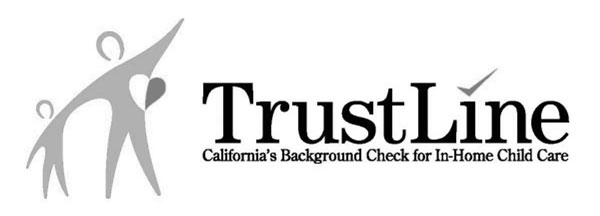When you find the right team of professionals to work in your home, proper orientation and training is essential to onboarding them successfully.
Potential Hire Trial Period
Once you select an employee to begin work in your home, a trial period is one of the best ways to get things started off on the right foot. It allows you as the employer and they as the employee to evaluate one another to see if things will work long term.
- Whether you choose to do a short or long trial period, be sure that you do your best to mimic actual home life and what their job will entail.
- Allow enough observation time to see how personalities mesh, how the employee takes direction or initiative, and if there is good chemistry. Hiring someone to work in your home is personal and requires the right fit.
- If you decide it’s not a great fit long term, it’s okay. Be honest about your feelings and observations and wish them the very best in their career endeavors.
It’s better to provide a trial and determine it’s not a good fit early on, rather than investing time and training in the employee, all to find out that it was never a good fit in the first place.
At Household Staffing, we recommend a paid 5-day trial – at a wage that matches what the employee would actually make. This is generally plenty of time to see how the employee works in your home and interacts with your family and other staff.
Welcoming New Staff Members
A warm welcome to your home ensures your new staff members feel comfortable.
First, spend some time giving them a tour of your home and the space they will be working in. This is a great way to greet them and introduce them to your family and other staff members.
Some employers provide a welcome gift, too. This could be a handwritten card or specially drawn picture from the children for a new nanny with a coffee gift card, a new computer or iPad for your personal assistant, or anything else you deem necessary.
Establishing an open and welcoming environment at the very get-go helps set the tone for a positive, respectful and healthy working relationship.
Training Programs and Resources
There are a variety of different training programs and resources for your employees, but they vary depending on what type of position you’re hiring for.
We recommend all household employees are CPR and First Aid Certified. If your employee isn’t certified, consider paying for them to complete the course and obtain their certification at the time of hire.
Position Specific Training
For Newborn Care Specialists
Newborn care specialists are experienced nannies that have completed additional training around babies and newborns.
During the interview process, find out if the nanny has completed the International Nanny Association (INA) Newborn Care Specialist Basic Skills Assessment.
Also check to make sure they have taken the INA NCS Credential Exam and newborn care specialist certification, which can be completed through the Newborn Care Specialist Association (NCSA).
For Estate Managers
Consider looking for candidates with business management or business administration degrees and/or experience.
These degrees and the experience that comes along with them give candidates the knowledge needed to be a successful leader in the home – managing employees, communicating effectively, and even managing financial or property assets.
Some estate managers may choose to become a Certified Property Manager® through the National Association of Realtors®, which offers enhanced training on the details of property management.
For Housekeepers
There are various online programs that provide training on professional housekeeping skills that include topics on career development, professionalism on the job, deep cleaning tutorials, and more.
For executive housekeepers, consider providing your employee with paid training on advanced organizational skills, tips on managing other staff, or other more detailed topics such as formal housekeeping techniques.
For Private Chefs
Private chefs typically benefit from formal culinary training. Look for candidates who have attended culinary schools or completed programs such as the American Culinary Federation’s (ACF) Certified Personal Chef® (CPC®) credential. This certification emphasizes skills in menu planning, nutrition, and specialized cooking techniques.
Additional certifications like ServSafe Food Handler or Manager are essential for private cooks, ensuring they understand and comply with food safety standards.
For clients with specific dietary requirements, consider cooks with specialized training in areas like vegan cuisine, gluten-free cooking, or nutritional meal planning, offered by institutions like the Culinary Nutrition Institute.
For Executive Assistants
Top executive assistants have certifications and training that enhance their organizational, technical, and interpersonal skills.
Consider candidates who have completed programs such as the Certified Administrative Professional® (CAP®) offered by the International Association of Administrative Professionals (IAAP). This certification covers essential skills in communication, project management, and business operations.
Proficiency in advanced software tools like Microsoft Office Suite, Google Workspace, or project management platforms like Asana or Trello can also set candidates apart. Certifications such as Microsoft Office Specialist (MOS) demonstrate expertise in these essential tools.
For Chief of Staff
Chief of Staff candidates excel in leadership training, strategic planning, and operations. A background in business administration or management, such as an MBA, provides a strong foundation for overseeing high-level operations and acting as a strategic partner to principals.
Certifications like the Certified Manager (CM®) credential from the Institute of Certified Professional Managers (ICPM) can validate their ability to manage teams, improve processes, and lead organizational initiatives effectively.
Additionally, training in areas such as conflict resolution, change management, and advanced project management—offered by institutions like the Project Management Institute (PMI)—can prepare them to handle the unique demands of this role.
Setting Expectations for the Probationary Period
Setting expectations for your household employee begins at the probationary period but extends into the lifespan of their employment with you, too.
The Written Work Agreement
The best way to establish clear expectations is by having a written work agreement. This should be a living document that outlines important details of the employee’s job, along with their position obligations and the rules of the home.
DO WE HAVE A SAMPLE WORK AGREEMENT TO OUTLINE?
Wages, benefits, and other job specific details or policies should be written out clearly, so they know what to always expect. If things change, have an open conversation with each staff member to ensure everyone is on the same page and adjust the work agreement/employment contract accordingly.















